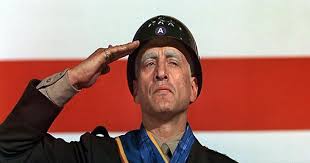We have all heard of the effects of this darsardly deed that supposedly plunged the world in the the greatest slump in modern history - how US tariffs were hiked to historic highs, prompting protests and bitter retaliation from around the world, greatly exacerbating the downturn.
But how much of this is fact - and how much is crap?
Leaving Smoot-Hawley aside for just a moment, let's consider this - the current global meltdown has occurred in an era of the free-est trade that has existed in nearly a century. So it's already clear that free trade cannot prevent severe recession. Indeed, the globalised finance system seems to have ensured that what is originally a US problem has now been spread throughout the world like a virus. So what's the solution? According the gurus of Davos (which is in reality, an overblown salesmans trade fair), the answer is simple - more of the same. Apparrently, the most liberalised trade since before WW1 just isn't liberal enough and "protectionist interference" such anti-dumping laws and national interest regulations must go.
But back to Smoot-Hawley. Named after it's two sponsors, Senator Read Smoot and Representative Willis Hawley, the act did indeed raise tariffs. But according to some researchers such as Alfred Eckes, that's about the extent of the truth in the most widely repeated version of events.
The great crash came in October 1929. Smoot-Hawley was not introduced until over eight months later, by which time the depression was underway.
Eckes disputes the claim that tariffs were raised to historic highs. The average duty on dutiable goods under the act was 44.9% He points to two periods previous where average duties were higher at 48.4% and 46.5% during the 1890's. There is also another important difference - in the late 1800's, roughly half of all goods entered the US duty free - under Smoot-Hawley, two-thirds did.
From 1929 to 1932, imports of dutiable and duty free goods fell at almost exactly the same, suggesting that if Smoot-Hawley disrupted world trade, as is often claimed, it can't have been by much and the global collapse was continuing to roll on under it's own steam regardless of a single US congressional act.
While it is commonly claimed that the act caused a storm of protest from around the world, US diplomatic records only show 3 countries lodging formal protests. It is impossible to discern how many countries raised tariffs in response to Smoot-Hawley and how many did it simply in response to the depression.
I am not convinced of the widom of the new free trade agreement recently signed by Australia (modelling done in 2000 by a private firm contracted to the Howard govt), due to take effect next year, or more specifically, I am not convinced of the wisdom of the total abolition of the textile, clothing and footwear tariff to zero. Despite the lowdown act by the management of pacific brands and the debt they are carrying, perhaps they have seen the way in which the wind is now blowing for Australian TCF manufacturers and have acted accordingly. The last vestiges of that industry will surely dissapear from this country, along with the capital goods and the skilled labour necessary for this island in the Pacific to be able to clothe ourselves if the need ever arose. If it becomes uneconomical for an entire country to feed and clothe itself, I say that something is seriously amiss with the system and that country is courting long-term disaster.
This deal had better be fuckin' worth it
